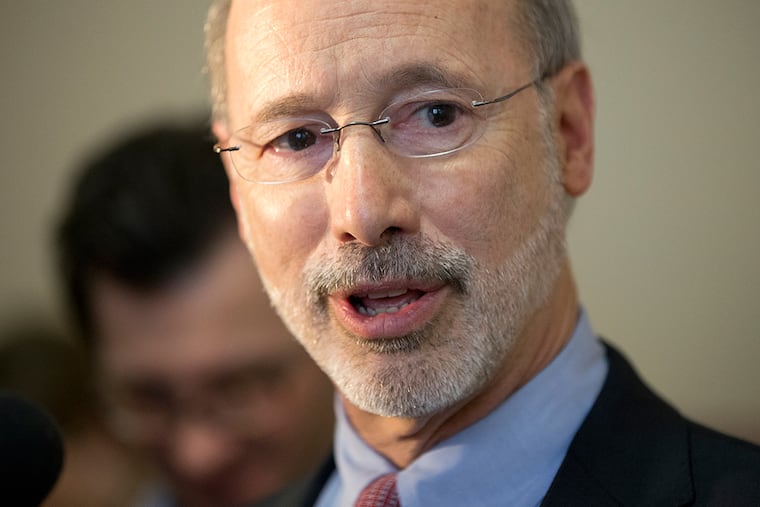Pa. is in dire need of property-tax reform
By Robert P. Strauss and Michael J. Suley Let's suppose that our new state leadership wants to improve the economic development prospects of Pennsylvania so our children can find great jobs nearby. Think grandchildren, too.

By Robert P. Strauss and Michael J. Suley
Let's suppose that our new state leadership wants to improve the economic development prospects of Pennsylvania so our children can find great jobs nearby. Think grandchildren, too.
What decisions need to be made to accomplish this goal? We think property tax reform is not only urgent, but is also really - and we say this assuming it will help get the attention of Harrisburg - politically sexy. Here's how the state's leadership can proceed:
Sexy reform proposal 1: The state tax equalization board (STEB) must be repositioned.
For the uninitiated, the STEB is in charge of making sure that state school aid - totaling a quarter of the state's general fund - is distributed accurately on a per pupil wealth basis to the 501 school districts. To make sure this gets one done to perfection, we believe it is essential that the STEB be moved into the state Department of Revenue by July 1.
Also it is crucial that the STEB's executive director have national real estate mass appraisal credentials, as determined by the International Association of Officers, and serve on a six-year basis in order to be fully independent of politics. This rebuilt STEB must have a larger and reinvigorated staff and about $2 million more in funding annually.
To reduce the potential for abuse in sending only favorable sales data to the STEB, we believe that real estate transfer tax data should be updated monthly. Doing it often is better than doing it infrequently, right?
Sexy reform proposal 2: Improving fairness in real-estate assessment is virtuous, but sometimes good things do cost money. (In other words, the case for the state Reassessment Trust Fund.)
Adult assessment practices around the country all require state oversight of local, politically appointed assessors. Strong oversight results in best practices. But who pays for doing it right?
The state should impose a statewide property tax that yields about $5 per parcel, and hold the money in 67 county-specific accounts to finance the cost of real property-tax administration. Any county, including Philadelphia, that wants its money back for property-tax administration would have to agree to administer its assessment process in accordance with national standards, and be verified by the STEB, in order to get its money. We think a consensual approach is better than a forced one, and is consistent with commonwealth conjugal traditions.
Sexy reform proposal 3: Mandatory or optional?
Should our elected leaders push for mandatory revaluation every three years, with actual inspection every six years? Or should they be content with current law, which allows counties to decide how to proceed? Keep in mind that county leaders usually wait for a judge to order them to get started.
If our elected leaders continue to allow their constitutional kids (the counties) to decide when to reassess, it will never get done. And let's face it, if nothing like the STEB is watching, it won't get done right. Botching it can be worse than not doing it.
Here's one unintended consequence of putting off the pain of reassessment: spot assessment appeals.
How many people understand that when you buy a house for a price above its currently assessed value, the local municipality or school district has the right to make sure that your purchase price becomes your new assessed value? They do so by appealing the low base-year assessment. And this new value remains in place until the reassessment process gets turned on years later (usually by a court). If there's no mandatory reassessment cycle, this obviously can be profoundly unfair to the new purchaser.
However, it doesn't have to be this way. Mandatory assessment and a lid on revenue growth will ensure fairness. Keep in mind, however, that if there's no mandatory assessment cycle, there still has to be a way to say "No" to spot assessment appeals.
So what's a sexy, politically safe approach to doing it right?
The best way to accomplish reform, on balance, is to reposition the STEB, reassess every three years, inspect every six years, and create a permanent state Reassessment Trust Fund that would ease the transition into state oversight and continue to supervise the process in the future. Once counties have reassessed, they should strive to stay at 100 percent of assessment-to-market value.
Isn't this a sexy political solution to one of our oldest governmental problems? And isn't it time Pennsylvania show the nation that one of its oldest states can do things right?